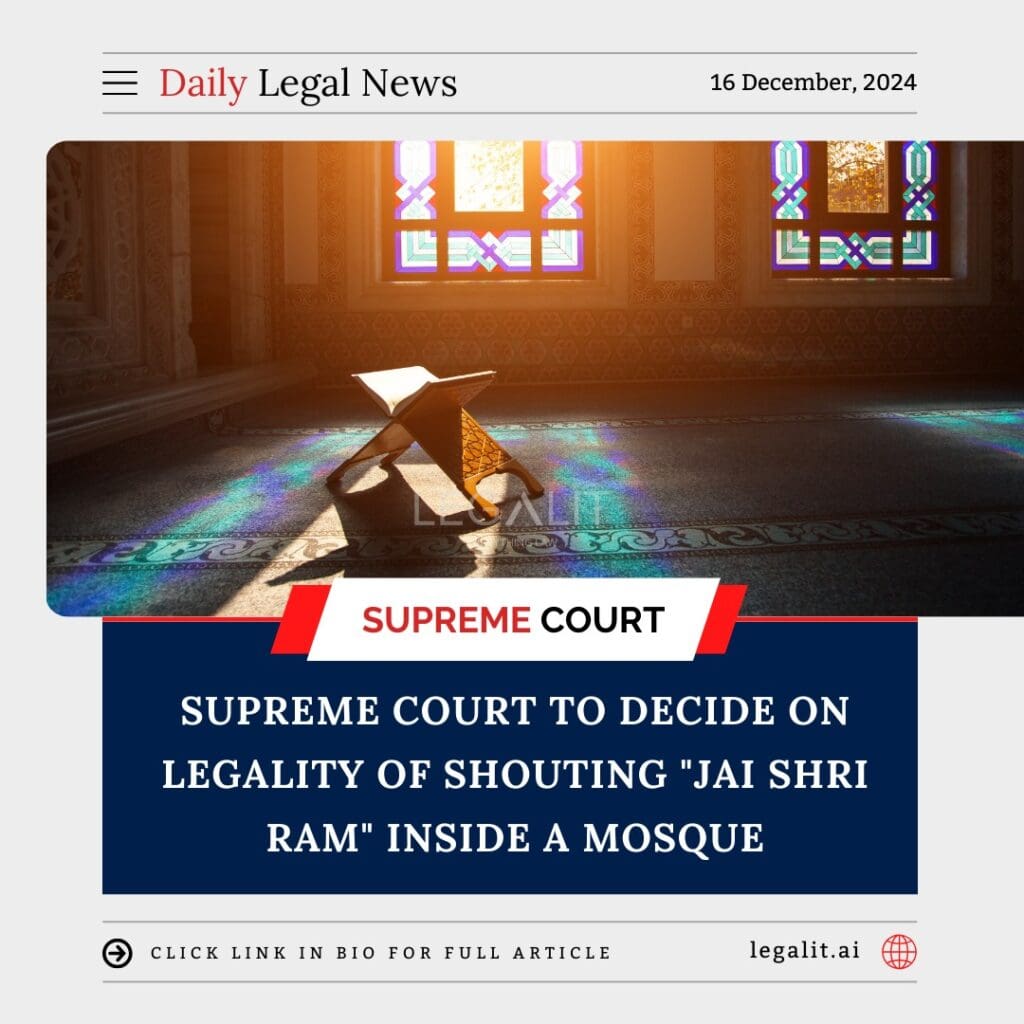
The Supreme Court of India is set to address whether shouting “Jai Shri Ram” inside a mosque constitutes an offense. The case raises significant questions about freedom of expression, religious sensitivities, and the boundaries of lawful behavior in a secular nation. The matter has garnered attention due to its implications for communal harmony and the interpretation of constitutional rights.
Background:
The case arises from an incident where individuals allegedly entered a mosque and shouted “Jai Shri Ram,” causing unrest among worshippers. A police complaint was subsequently filed, alleging that the act was intended to provoke religious sentiments and disturb peace.
The accused argue that their actions were an expression of their religious beliefs and should be protected under Article 19(1)(a) of the Constitution, which guarantees the right to freedom of speech and expression. Conversely, the complainants contend that such acts inside a religious place amount to disrespect and a deliberate attempt to incite disharmony, punishable under Sections 295A and 153A of the Indian Penal Code.
Court’s Rationale:
During preliminary hearings, the Supreme Court noted the delicate balance between the right to free expression and the duty to maintain public order and communal harmony. The bench observed that while freedom of speech is a fundamental right, it is not absolute and can be curtailed under Article 19(2) if it endangers public order or incites violence.
The court is expected to examine:
- Whether the act of shouting “Jai Shri Ram” in a mosque falls within the ambit of hate speech or incitement.
- Whether the accused intended to insult the religious sentiments of another community.
- The broader implications of the judgment on freedom of speech and interfaith relations in India.
Existing Measures:
Indian laws, including Sections 295A and 153A of the IPC, provide safeguards against acts intended to outrage religious feelings or promote enmity between communities. However, the judiciary has consistently emphasized that intent and context are critical factors in determining culpability.
Past judgments have underscored the importance of upholding constitutional secularism, ensuring that acts disrupting religious harmony are addressed while protecting genuine expressions of faith.
Conclusion:
The Supreme Court’s decision will have far-reaching consequences, shaping the legal boundaries of religious expression in India. A verdict against the accused could reinforce protections against religious provocation, while a ruling in their favor might redefine the scope of free speech in religious contexts. As the case progresses, the nation watches closely, given its potential impact on communal harmony and constitutional rights.